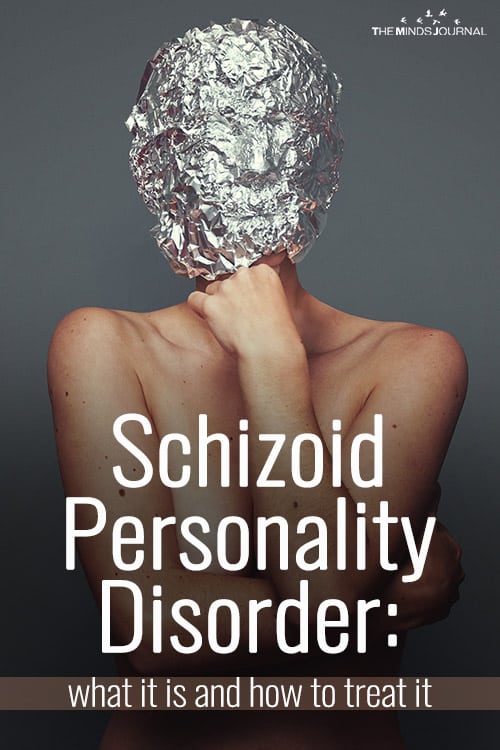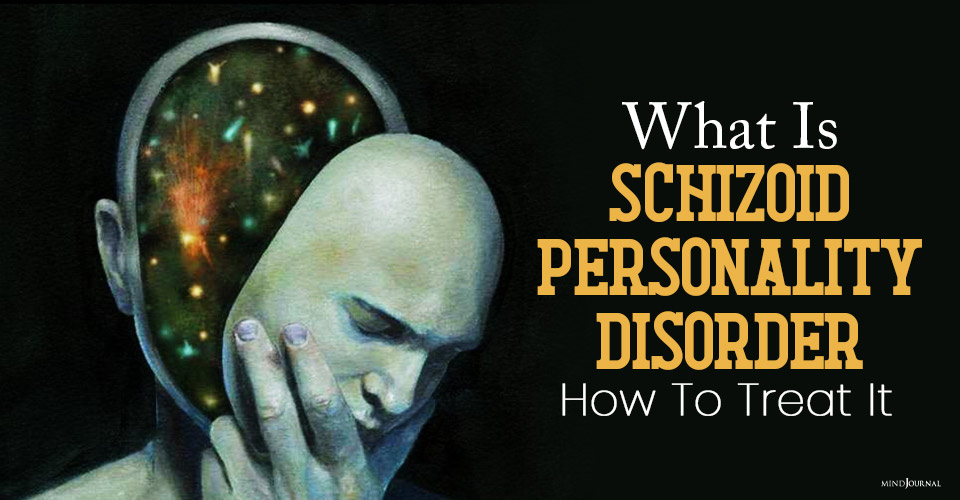A schizoid personality disorder is a rare mental condition that significantly limits your ability to connect with others. A schizoid person is detached from others and avoids social interactions.
Approximately 3% to 4.9% of American citizens are affected by this disorder. Studies have also found that it is relatively more common in men than women. Although it sounds like schizophrenia, this mental disorder is not similar to schizophrenia, schizotypal or schizoaffective.
Related: Mental Health Issues In Men
What Is Schizoid Personality Disorder?
Schizoid personality disorder (SPD or SzPD) is a type of Cluster ‘A’ condition or eccentric personality disorder. It is a pattern of detachment and indifference towards social activities and relationships.
Schizoids are usually distant and detached and have a very limited range of emotions and expressions. They have a tendency to be loners and prefer a solitary lifestyle dominated by emotional detachment, secretiveness, and apathy. They are usually unable to develop intimate attachments and prefer to live in their own internal, yet elaborate, fantasy worlds.

However, unlike someone with schizophrenia, people with SPD are fully aware of reality and do not suffer from hallucinations or delusions. They can function normally like most of the general population and even hold steady jobs.
However, they tend to choose careers where they can work alone like lab workers, librarians, or night guards. But they do not feel that they are odd or something might be wrong with them. People with schizoid personality disorder are also at risk of experiencing depression.
Related: 5 Things You Can Do To Overcome Depression And Anxiety Naturally
According to the DSM-5, SPD is a “pervasive pattern of social and interpersonal deficits marked by acute discomfort with, and reduced capacity form, close relationships as well as by cognitive or perceptual distortions and eccentricities of behavior, beginning by early adulthood and present in a variety of contexts.”
Symptoms Of Schizoid Personality Disorder
Apart from being socially isolated, cold, and aloof, people with this mental condition tend to have fewer romantic relationships and friendships. Most schizoids don’t get married and may even choose to live with their parents during their adult lives.
This mental condition is usually noticeable during early adulthood, although some traits can be seen from childhood as well. As a result, they tend to have difficulty growing up in a socially healthy way.
Here are some of the common symptoms of schizoid personality disorder:
- Prefer to be a loner and engage solitary activities & jobs
- No desire to build close relationships or friendships
- Inability to maintain closeness with family members
- Little or no desire to experience sexual relationships
- Unable to feel pleasure from any activities
- Have problems expressing emotions or reacting appropriately
- Appear emotionally detached, cold, indifferent and humorless
- Lack empathy as they have difficulty relating to others
- Usually indifferent to praise or criticism from others
- May lack any ambition, goals or motivation
- Show little or no noticeable change in mood
- Avoid social interactions and activities or contact with other people
- Preoccupied with daydreaming & creating detailed fantasies of rich inner lives
Related: A Smile Can Lift the Veil of Social Isolation

Causes Of Schizoid Personality Disorder
Studies are primarily unclear about what causes SPD in an individual. However, researchers believe that both genetic and environmental factors may lead to this mental condition. Individuals who have a family history of illnesses related to schizophrenia have a higher risk of SPD as they are more genetically susceptible.
Apart from these, other factors like childhood experiences, inherited traits, education, parenting, social interactions, and others may also contribute to developing this mental disorder.
How SPD Is Diagnosed
If you think you or someone you know are exhibiting signs of schizoid personality disorder, then you should immediately consult a doctor.
A healthcare professional will analyze your symptoms. If the doctor finds any symptoms of SPD, they might conduct a physical exam and check your complete medical history. The doctor might also use different diagnostic tests to look for any hidden medical conditions which may lead to your symptoms.
If your doctor is confirmed that your symptoms are not a result of any physical illness, they might refer you to a mental health professional as general practitioners usually lack the training to diagnose such an uncommon & confusing mental disorder.
Psychiatrists & psychologists are properly trained to treat mental disorders and illnesses. A mental health care professional will use specially developed assessment tools to analyze and diagnose you for any personality disorders.
According to the DSM-5 diagnostic criteria, any individual needs to exhibit at least 4 of the below-mentioned symptoms to be diagnosed with schizoid personality disorder:
- Strong preference for solitary activities
- Little or no interest in sexual experiences with others
- Lack of desire for developing intimate personal relationships
- Only share relationships with immediate family & have no close friends
- Experience little or no pleasure from any activity
- Indifferent to praise or criticism
- Lack of emotional expression and is emotionally detached
Treatment For Schizoid Personality Disorder
As people with SPD do not think that anything is wrong with them, they rarely seek any treatment or help on their own. Moreover, as their behavior, thoughts, and lifestyle do not usually cause any distress, they choose to live their lives this way. It is only when the condition has severely affected different aspects of their life, they might ask someone for help.
When a schizoid seeks treatment, the following methods can prove to be effective:
1. Cognitive behavioral therapy
It is a goal-oriented, short-term psychotherapy treatment that aims to change patterns of behavior and thinking of people with SPD. This method of treatment can be successful as it enables the schizoid to change their thoughts, behaviors, and actions; improve general coping skills; increase social interaction; and boost self-esteem.
This may change their tendency to choose isolation and make them pursue social relationships. However, there are certain challenges with this treatment technique. As it is crucial to trust the therapist, it can become an issue as people with SPD are reluctant to form relationships with others.

2. Group therapy
This is another form of psychotherapy that can help treat SPD. Group Therapy can help schizoid to improve their social skills by gradually becoming comfortable in a social setting. Group therapy involves one or more mental health experts working together to treat different people simultaneously.
Although it may initially sound intimidating to someone with SPD, this can, in fact, be a rewarding experience for all group members. The group experience can provide support and motivation to every member in the group to help each other and overcome challenges that come along the way.
3. Medication
Generally, medication is not used to treat a schizoid person. But when all other treatment methods prove ineffective, medications may be used to treat some of the symptoms. Currently, no FDA-approved medications are available to treat personality disorders.
Hence, medications may be used to treat related psychological conditions like anxiety and depression. Therapists may prescribe anti-psychotic drugs to treat feelings of indifference.
Related: Music Therapy for depression – how can it heal you?
Understanding Is The First Step To Treatment
Although the behavior of a person with a schizoid personality disorder might seem odd, we need to realize that it is a personality disorder and they are able to function normally in their daily lives. All they need is the right support and helpful treatment to become more social and enjoy the wonders of life.
If you are a schizoid, then know that support is available and you can experience the beauty of life just like everyone else.
Related: 9 Vital Steps To Protect Your Mental Health (backed by science)











Leave a Reply